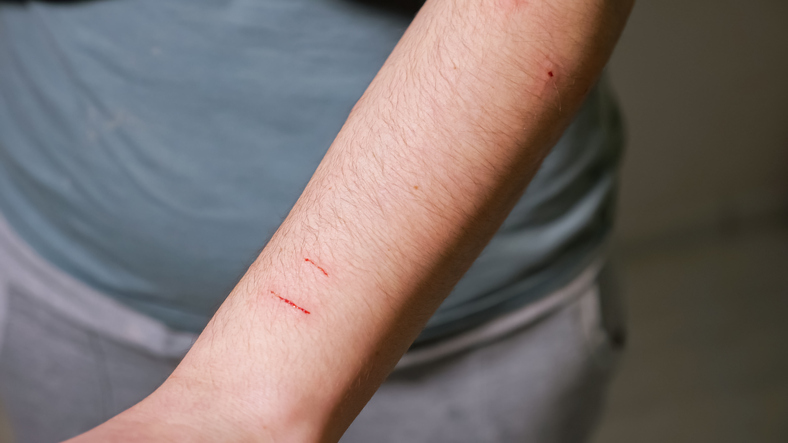What is Cat Scratch Disease (Charlotte, NC)?
Have you ever heard of cat scratch disease? Is this disease common, and is it something you need to worry about if you have pet cats in your home? What are the symptoms of this condition and what does it mean if you contract it?
In the article below, you’ll find a brief but thorough explanation of cat scratch disease. You can use this information to learn how to recognize the signs of symptoms of this condition and to understand what to do if you think you might have it. Read on to find out more!
What causes cat scratch disease?
Cat scratch disease is the common name for a type of bacteria known as Bartonella henselae. When this bacterium enters a human’s body, it can quickly develop into this disease.
Cat scratch disease is not spread or carried by every cat; cats must be infected before they can spread this condition to humans or other cats. The condition is spread when cats scratch or bite hard enough to break the skin, or when cats lick an existing open wound. Any time a cat’s saliva or claws have a chance to come into contact with human blood, there is a risk for cat scratch disease to develop. It may go without saying, but cats who are more prone to biting and scratching are at a greater risk of spreading this illness.

What are the symptoms of cat scratch disease?
- Fluid-filled lesions: Fluid-filled lesions may occur at the site of the cat bite or scratch up to two weeks after it occurs.
- Fever: A fever may or may not occur along with the lesions at the site of the cat bite.
- Headache: Many people with cat scratch disease experience a headache with the condition.
- Swollen lymph nodes: The lymph nodes nearest the site of the infection will typically swell on an infected human. Lymph node swelling can be associated with a variety of other conditions and should always be examined by your doctor if the problem persists more than a couple of days.
What are the treatments for this disease?
- Most humans do not need any type of treatment for this. The condition will typically resolve itself after a couple of weeks at most.
- Rarely, humans with weakened immune systems may be given a round of antibiotics to help fight off the infection and to reduce the risk of secondary infections as well.
- Humans may also be given pain medication or may be instructed to take over the counter pain medicine to combat pain and mobility issues related to lymph node swelling. Warm compresses may also help with this problem.
What are the best ways to prevent it?
- Never allow your cat to lick your open wounds. Cats may sometimes be drawn to this habit, even with human family members, but you should refrain from allowing your cat to do this.
- Always wash scratches and bites from any cat with hot, soapy water. Even a cat who does not show signs of illness could be a carrier for this condition.
- Trim your cat’s nails. This way, she will be less likely to be able to scratch you and risk spreading the infection, and she will also not carry as much bacteria under her nails, either.

What is the prognosis for cat scratch disease?
Most humans will recover fully from cat scratch disease without much trouble at all. In very rare instances, however, it is possible for the condition to spread to the brain or heart, and the disease may also lead to blindness in humans. These results are extremely unlikely and should not be considered the norm. Most humans will show very mild to moderate symptoms and will get better in a couple of weeks at most.
Cats with this disease can typically live their lives just fine with the condition. Very rarely, the disease can cause inflammation of the heart and may lead to death, especially in kittens or senior cats. Additionally, other very rare risks include inflammation of other organs of the body and blindness. Cats, like humans, almost never experience these rare potential hazards, and most cats will never show symptoms of cat scratch disease at all.
Summary
Cat scratch disease is not very common, and most cat owners go their whole lives without ever worrying about contracting it. However, it is important to know how to recognize the problem just in case it ever happens to you or your family.
With the help of this information, you can better understand what to expect when it comes to your risk of cat scratch disease. If you have any further questions or concerns, talk to your vet or to your family’s general practice doctor for more information.
If you have any questions regarding your cat’s health or would like to schedule an appointment, call us at (704) 588-4400. Here at Steele Creek Animal Hospital we are ready to help you and your pet with whatever you may need!
